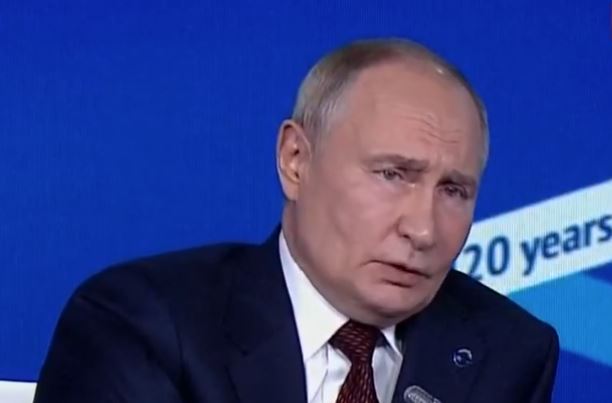In November 2024, Russian President Vladimir Putin spoke out regarding Donald Trump’s election victory, which he described as a landslide. This marks a significant moment, considering the complex geopolitical relations between Russia and the United States. Putin, previously supportive of Kamala Harris in the 2024 presidential race, has shifted his stance following the electoral outcomes. The Russian leader’s previous endorsement of Harris seemed to stem from a hope that her policies would align with his interests, particularly in continuing what he perceives as the “destruction of the U.S.” initiated by the Biden-Harris administration since 2021. His comments about her “expressive and contagious laughter” suggest a level of admiration for her charisma, indicating that his political maneuvers may partly be influenced by personal judgments of the candidates.
In his recent statements, Putin has expressed a willingness to engage in dialogue with Trump, signaling a potential thaw in relations following a tumultuous period. His acknowledgment of Trump’s courage in dealing with threats to his life reflects a sense of respect and recognition of bravery. This demonstrates Putin’s affinity for strong leadership, which he seems to believe Trump embodies. By admiring Trump’s reaction during a crisis, the Russian president emphasizes a shared value for resilience, suggesting that both leaders could find common ground despite their nations’ intricate issues. This could open avenues for future negotiations or collaborations, as Putin appears keen to re-establish a working relationship with the former U.S. president.
Putin’s remarks also highlight the significant divide between Russian and American political landscapes. While he expresses admiration for certain traits in Trump, he simultaneously casts skepticism towards Democrats, whom he perceives as detrimental to U.S. interests. This perspective aligns with a broader strategy of undermining U.S. global influence, where promoting division among American leadership is beneficial for Russia. The timing of Putin’s statements—after a contentious election—suggests a calculated move to reinforce his influence in global politics and assert Russia’s position on the world stage while simultaneously focusing attention on American political dynamics.
Moreover, Putin’s support for Harris illustrates the broader context of Russian interests interfering in U.S. politics. Historically, Russia has been accused of manipulating democratic processes in other countries to sway results in their favor. By expressing support for certain candidates, be it Trump or Harris, Putin operates within a framework of opportunism, attempting to elevate individuals he believes would further Russian geopolitical aims. The adulation for Harris’ personality, along with the simultaneous respect for Trump’s fortitude, reveals a multifaceted strategy in which Putin assesses leaders based on their potential for collaboration or conflict with Russian priorities.
This situation raises critical questions about the future of U.S.-Russia relations and the implications of a Trump administration revisiting the Oval Office. Should Trump take the helm again, the nature of negotiations between the two powerful nations could shift dramatically, especially considering the past, relatively cordial relations during Trump’s first term. These dynamics could result in a reevaluation of alliances, especially regarding Eastern European countries, NATO, and other global concerns. The mere acknowledgment by Putin of the election outcome indicates an eagerness to re-enter discussions on international policies, trade agreements, and security matters.
In conclusion, Vladimir Putin’s recent comments concerning Donald Trump’s election victory illustrate significant undercurrents in international relations and the strategic motivations behind political endorsements. His transition from supporter to a potential collaborator with Trump underscores the complexities involved in diplomacy. Both leaders are presented with an opportunity to address not only their nations’ challenges but also global issues that require cooperative engagement. As the geopolitical landscape evolves, the interactions and decisions made in the wake of this election may reverberate throughout future U.S.-Russia relations, shaping international policies for years to come.

